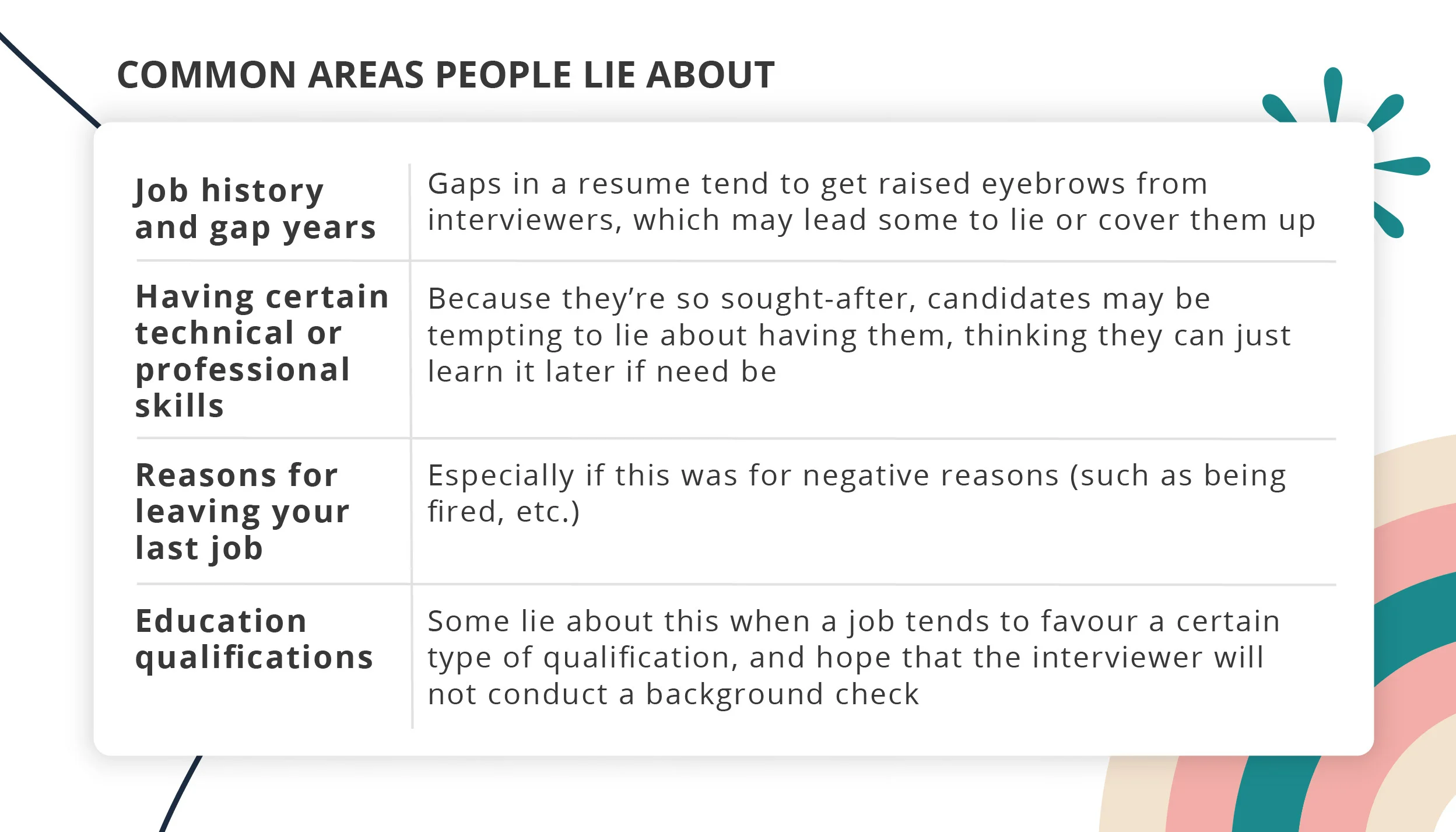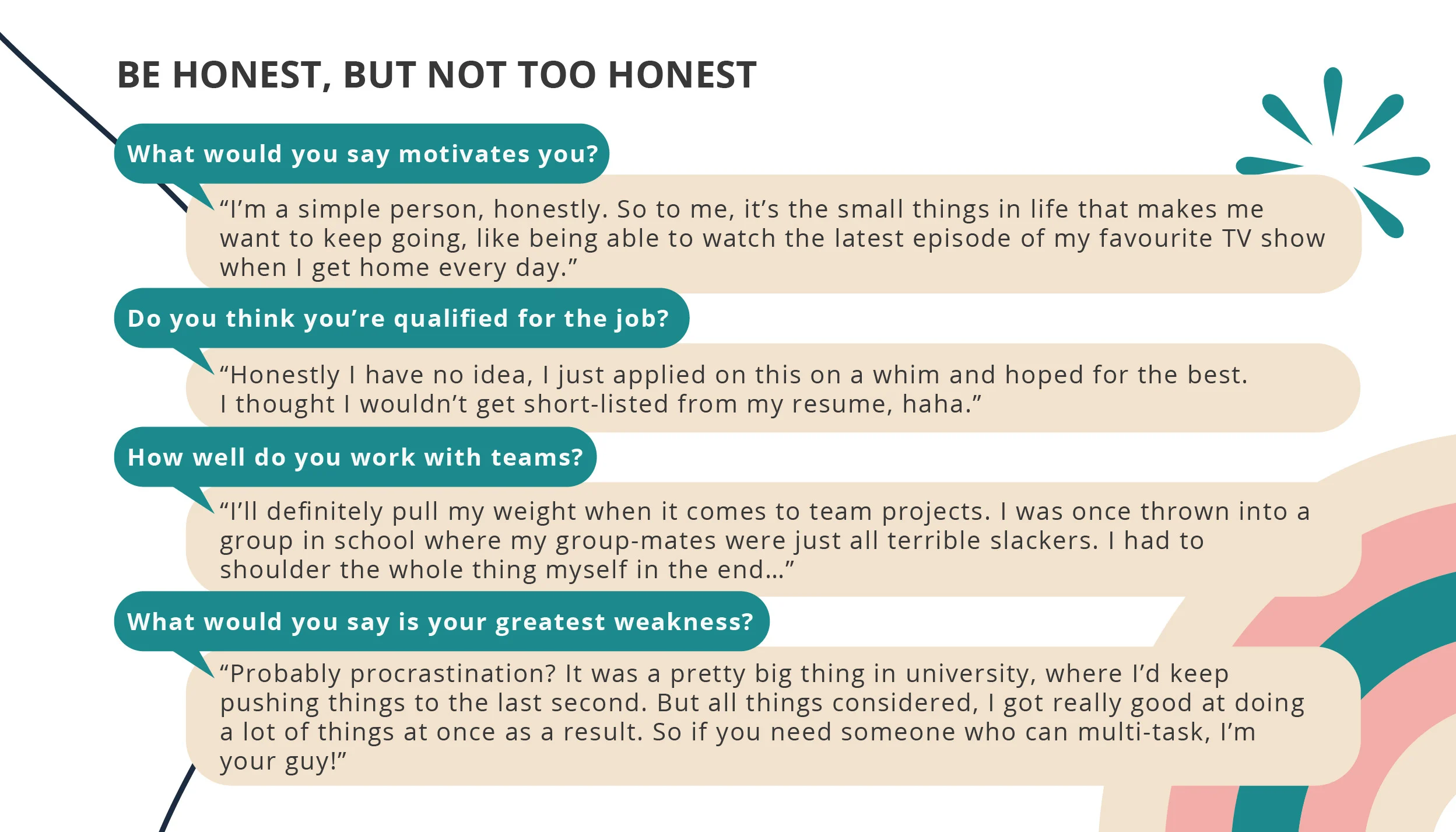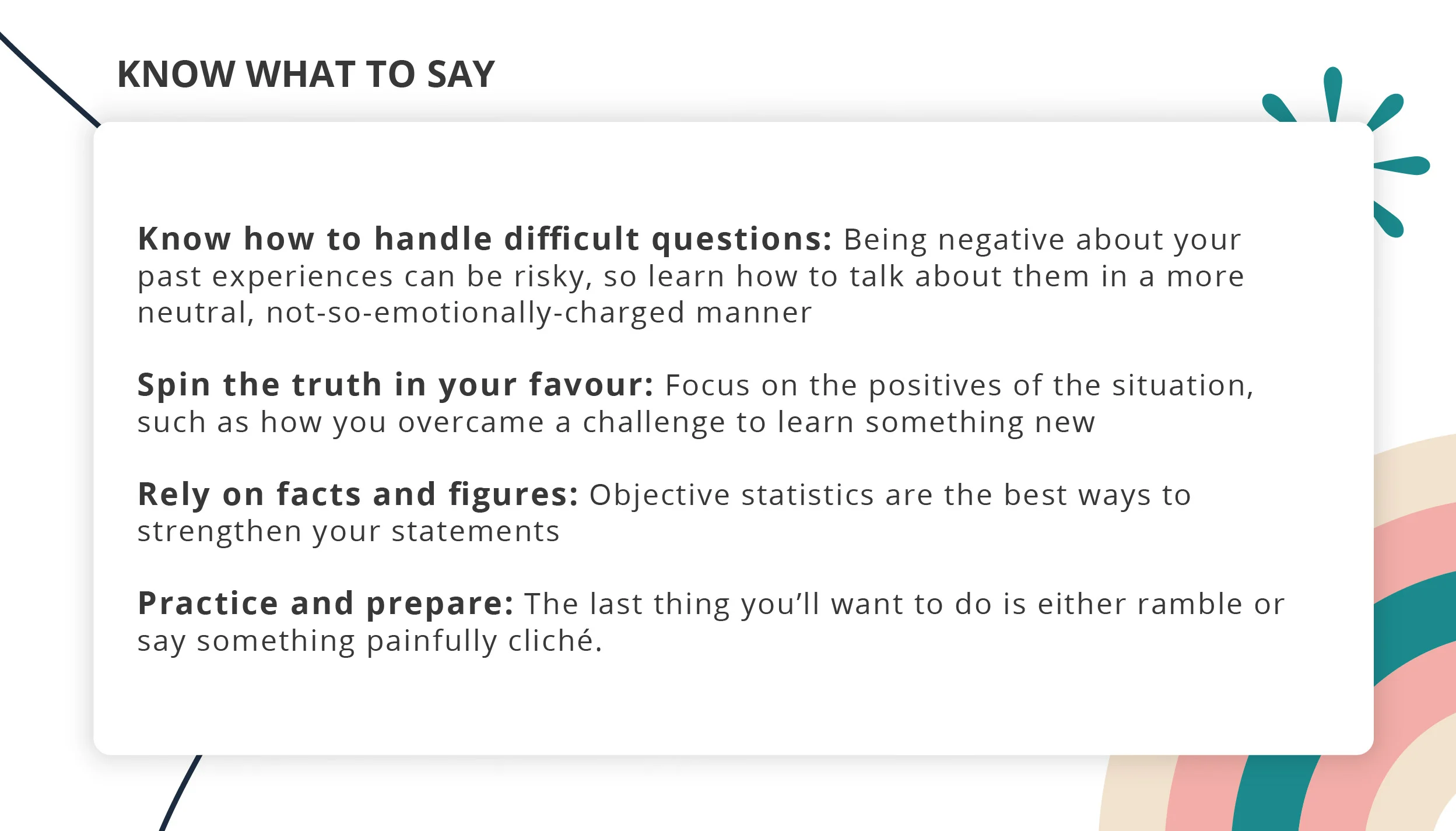Being interviewed can be a stressful experience, especially if you’re new to it. Not only do you need to be mindful of your appearance and body language, but what you say can win or lose you the opportunity. Even one poorly crafted response can be the difference between getting the job and rejection.
In a bid to show the best version of yourself at the interview, you might be tempted to make yourself seem better than you actually are, whether you claim to be a great leader or have excellent skills in Photoshop. But would such a gamble pay off in the long run?
Small lies, big consequences
The obvious answer is that you shouldn’t lie during your interview, for many reasons. On top of it being unethical, doing so can and will eventually catch up to you. After all, when you lie, you have no actual memories to fall back on. More often than not, you would even have to keep lying to continue the charade. In so doing, you make things harder for yourself by giving the company false expectations of you. This could make upkeeping your job performance difficult when you do land the job.
For example, say that you claim in your resume that you’re fluent in Korean, which seems like an inconsequential skill to have. The lie is believed, you’re hired without incident and you think that you’ve gotten away with it. That is, until one day, your supervisor cheerily tells you that you’ll be in charge of a merger project with a Korean company.
Depending on the severity of the lie, the consequences after getting caught can lead to you getting fired, and leave your reputation and credibility tarnished. Worse still, you’ll likely be blacklisted by the company and others within the industry you’re in.

How honest is too honest?
Although it’s important to come across as authentic, there’s a fine line between being honest and accurate, and divulging every detail about yourself.
As friendly and cordial as your interviewers may be, you are still at a professional interview, so do avoid an info-dump of any irrelevant or even damaging information about yourself.

There are over 100,000 jobs available on MyCareersFuture. Apply for your next job role here!
A matter of nuance and judgement
Lie and run the risk of ruining your credibility; go overboard with your honesty and you might end up saying something you shouldn’t. So, what should you do?
Overall, honesty is still the best policy, but the truth should also be told tactfully. Be truthful about your background and skills but present it in a positive light. At the same time, ensure that any response you provide is relevant to the job you’re applying for.
If the topic turns to aspects of your personal life, a few omissions may be permissible. For example, when asked about your hobbies, it’s best to pick out hobbies that are both appealing to the company and of your interest.

As you keep attending job interviews, you’ll come to find that there’s a fine line between showing your best self and obscuring the truth. As long as you plan ahead and stick to the facts, you generally won’t go wrong.
This article is contributed by gradsingapore.















